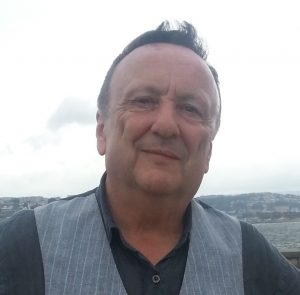 Simon Jarrett praises a keenly observed film seen entirely from the point of view of its main character
Simon Jarrett praises a keenly observed film seen entirely from the point of view of its main character
My Feral Heart Director: Jane Gull Writer: Duncan Paveling
A young man with Down’s syndrome looks after his ailing, elderly mother. The two of them live alone. He is calm, competent and kind. He cooks, cleans, shops and helps her to wash and dress. He plays her favourite music and even manages to get her to dance a few steps with him. Their world is very small and very isolated, but he is in control and manages it well. The inevitable happens, and his mother dies in her sleep.
Sadly, what follows is equally inevitable: social workers, much tut- tutting over his vulnerability, total statutory blindness to his abilities and his personal history, and the sad enforced car journey away from everything he knows, to a care home utterly strange to him.
This is the premise of Jane Gull’s excellent and keenly observed film, which breaks new ground in cinematic treatment of learning disability in a number of ways. The film is seen entirely from the point of view of Luke, played by Stephen Brandon who has been nominated for Best Actor in the National Film Awards for his fine performance. Other characters feed off him and are sometimes influenced by him but they are not the story – he is, throughout. Luke is a three dimensional character, who has the full range of human emotions. This should not be a surprise but unfortunately, given the history of film treatment of this subject, it is. Finally, we are asked to believe in him and go with him, even when he is doing things that appear to us unexplained and strange. And because of this film’s sincerity and authenticity, coupled with the strength of Stephen Brandon’s performance, we do.
The care home is a miserably inappropriate place for the grieving Luke, alien to everything he has ever experienced in his life. As a ‘resident’ he cannot enter the kitchen, he cannot go out unaccompanied and nobody seems to know or care about who he is, other than that he is a man with a learning disability who has now become that dreadful anonymous object, a service-user. As is often the case, he is seen for who he is not by any qualified ‘professional’, but by two outsiders – Eve (Shana Swash), a lowly care assistant who senses his grief, and Pete (Will Rastall), a posh but troubled young man, doing community service in the care home grounds.
Magic realism
Pete simply bonds with Luke human to human, troubled outsider to troubled outsider. There is a bold (if not entirely successful) element of magic realism, when Luke rescues an injured, mute wild child (Pixie Le Knot) whom he finds lying in a field, and removes her to a barn where he cares for her.
It is a pity that this film did not win general release. However, it has built a following and a reputation through the ‘our screen’ initiative where cinemas will show a film if enough people sign up to watch it. It has attracted screenings across the country in this way, a sign of its strength and the originality of what it has to say.
